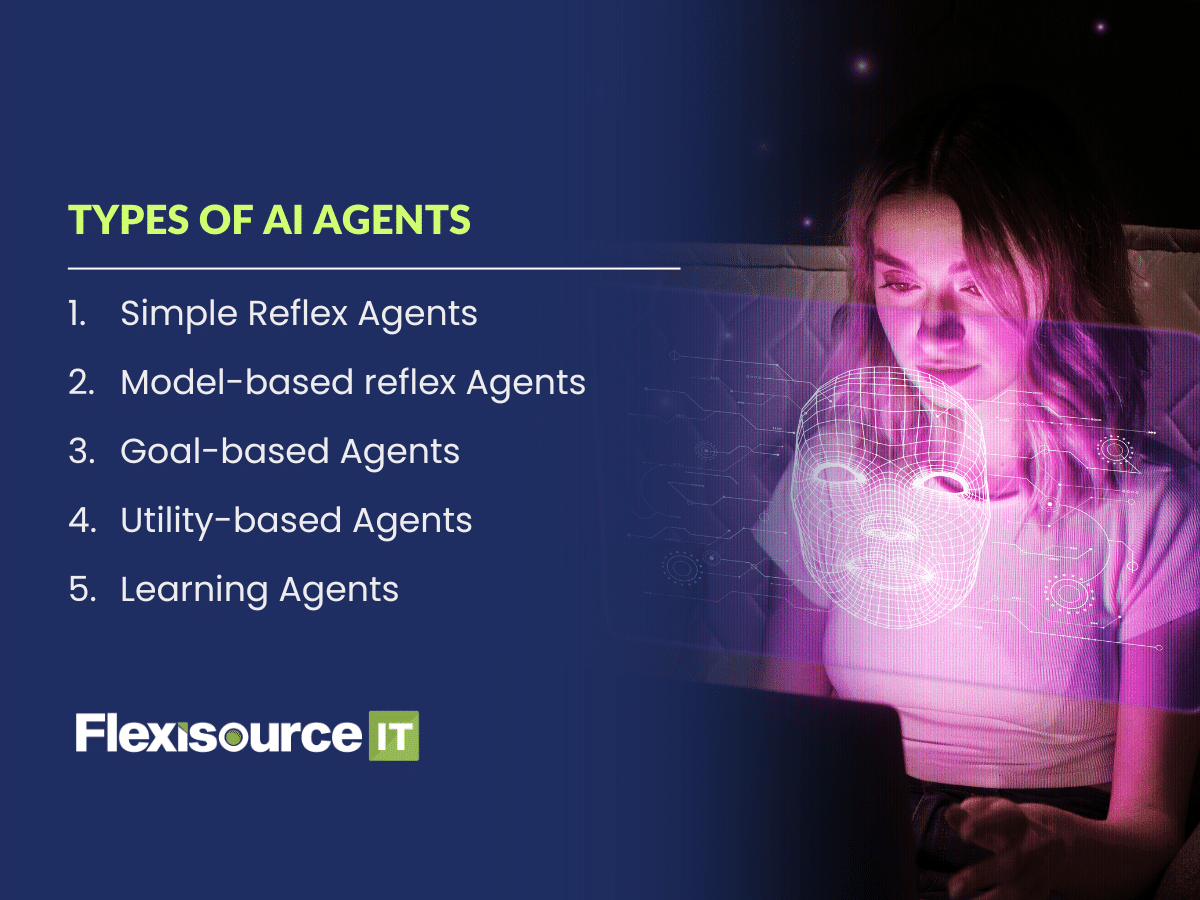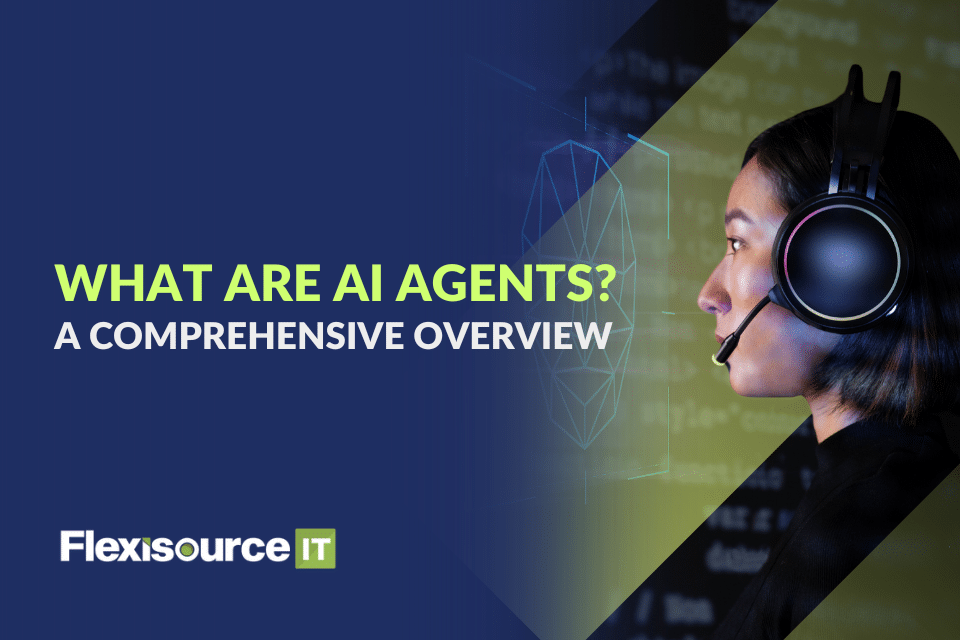Artificial Intelligence (AI) has permeated almost every aspect of our modern lives. It is available anywhere, from simple digital assistants on our phones to complex systems. Central to these technologies are AI agents, intelligent entities that interact dynamically with their environments to fulfill certain goals or tasks.
But, what are these AI Agents? Are they a danger to our privacy?
This article explores AI agents, how they function, their various types, and their practical applications across different industries.
What Are AI Agents?
Basically, AI agents are systems capable of autonomous actions aimed at achieving specific objectives based on the data and stimuli from their environment. They can learn from outcomes, improve their performance, and make decisions even in complex scenarios. These agents are not just software; they include integrating hardware and software designed to perceive their surroundings and act accordingly.
The fundamental purpose of an AI agent is to make automated decisions that facilitate certain outcomes or tasks. These decisions are typically the result of data analysis and predefined protocols aimed at solving problems or enhancing processes. For instance, in 2021, AI agents processed over 80% of incoming customer service inquiries without human intervention, significantly reducing response times and operational costs for businesses.
Types of AI Agents
AI agents come in various forms, differentiated by their complexity and functionality.
- Simple vs. Complex Agents
- Simple agents perform straightforward tasks based on predefined rules or commands.
- Complex agents utilise advanced capabilities like machine learning and reasoning to handle multifaceted problems.
- Autonomous Agents
These agents operate independently, making decisions without human intervention. Examples include self-driving cars and robotic vacuum cleaners. - Reactive Agents
Reactive agents respond to immediate environmental stimuli without considering the historical context. For example, a chatbot answers customer queries based solely on the input it receives. - Cognitive Agents
These advanced agents mimic human-like cognitive processes, including reasoning, problem-solving, and learning. They can understand abstract concepts and adapt to new challenges.
How Do AI Agents Work?
AI agents rely on a combination of advanced technologies to function effectively:
- Algorithms. Algorithms provide the step-by-step instructions for decision-making. From simple if-else logic to complex machine learning models, algorithms are at the core of AI agent behavior.
- Machine Learning (ML). ML enables agents to learn from data and improve over time. This capability allows them to adapt to new information and refine their decision-making processes.
- Natural Language Processing (NLP). NLP equips AI agents with the ability to understand, interpret, and respond to human language, making them essential for applications like virtual assistants and chatbots.
- Computer Vision. Some agents use computer vision to process visual information from the environment, such as recognising objects or interpreting facial expressions.
Key Components of AI Agents
AI agents function effectively due to the integration of several key components:
- Environment Sensing
Sensors or data input mechanisms allow agents to perceive their surroundings. For instance, a weather-predicting agent collects meteorological data from external sources. - Action Execution
Actuators or output mechanisms enable agents to act upon their environment. In a marketing application, this could mean triggering personalised email campaigns based on user behavior.
Types of AI Agents
AI agents are categorised based on their complexity, functionality, and approach to decision-making. These categories reflect their ability to sense, process, and act upon their environment. Below is an overview of the primary types of AI agents:

Simple Reflex AI Agents
Simple reflex agents act purely based on predefined condition-action rules. They do not maintain a memory of past actions or states and only respond to the current input from their environment.
How They Work:
- They evaluate the current state using sensors.
- Based on specific conditions, they execute a predefined action.
For example:
“If the temperature is below 20°C, turn on the heater.”
Examples:
- Spam filters that block emails containing specific keywords.
- Basic light sensors that turn lights on/off based on brightness levels.
Model-Based Reflex AI Agents
Model-based reflex agents build an internal model of the world, enabling them to track changes in their environment and predict the outcomes of their actions.
How They Work:
- Maintain a representation of the environment.
- Use this model to make informed decisions about what actions to take.
Examples:
- Navigation systems, such as Google Maps, consider current traffic conditions and predict future states.
- Robots that map their surroundings to avoid obstacles.
Goal-Based AI Agents
Goal-based agents focus on achieving specific objectives. They evaluate possible actions to determine which one brings them closer to their goal.
How They Work:
- Use a goal-oriented approach to assess the desirability of outcomes.
- Plan actions to achieve predefined goals based on their model of the world.
Examples:
- Delivery drones that calculate the optimal route to deliver packages.
- Virtual assistants scheduling tasks based on user priorities.
Utility-Based AI Agents
Utility-based agents aim to maximise their “utility” or satisfaction by choosing the action that provides the highest benefit or value.
How They Work:
- Use a utility function to evaluate and compare the desirability of different outcomes.
- Make trade-offs between competing options based on calculated utility.
Examples:
- E-commerce recommendation systems suggesting products based on user preferences and behavior.
- AI-powered financial advisors optimising investment portfolios.
Learning Agents
Learning agents are capable of improving their performance over time by analysing their environment and experiences. They can adapt to new information and refine their decision-making processes.
How They Work:
- Learn from feedback or rewards received after actions.
- Incorporate new data into their model to improve future actions.
Examples:
- AI chatbots that improve their responses based on user interactions.
- Self-driving cars that learn from driving data to improve navigation and safety.
Applications of AI Agents in Various Industries
AI agents are transforming industries by enhancing efficiency, reducing costs, and enabling innovative solutions. Here are some key applications:
Healthcare
- Virtual health assistants provide personalised medical advice.
- Predictive models analyse patient data to identify health risks.
- Robotic surgery assistants improve precision and outcomes.
Finance
- Fraud detection systems monitor transactions for unusual activity.
- Robo-advisors offer personalised investment recommendations.
- Chatbots streamline customer service for banking inquiries.
Retail and E-Commerce
- Recommendation engines enhance customer experience by suggesting relevant products.
- Inventory management systems optimise stock levels based on demand forecasts.
- Virtual shopping assistants guide users through online stores.
Manufacturing
- AI agents monitor production lines for quality control.
- Predictive maintenance reduces downtime by anticipating equipment failures.
- Autonomous robots improve efficiency in logistics and assembly tasks.
Transportation
- Self-driving vehicles use AI agents to navigate and avoid obstacles.
- Traffic management systems optimise flow and reduce congestion.
- Predictive maintenance ensures the safety and reliability of fleets.
Education
- Intelligent tutoring systems provide personalised learning experiences.
- Virtual mentors guide students through coursework.
- Automated grading systems save time for educators.
Conclusion
AI agents represent a transformative technology that is reshaping industries and redefining the way we solve problems. From simple reflex agents that perform basic tasks to advanced learning agents capable of adapting and improving over time, these intelligent systems offer unparalleled opportunities for efficiency, innovation, and scalability.
Ready to elevate your business with AI agents? Contact Flexisource IT today to explore how we can help you leverage AI to drive growth and innovation.









